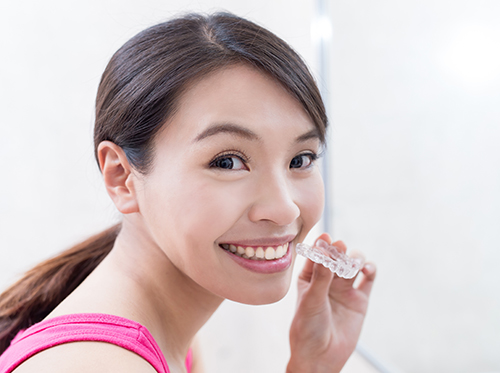What are the benefits of early orthodontic treatment?
May 25th, 2018

Orthodontic treatment should begin earlier than most parents are apt to assume. According to the American Association of Orthodontists, orthodontic treatment should start at around seven years of age.
Dr. Edward Bruno can evaluate your child’s existing and incoming teeth early on to determine whether treatment might be necessary or not.
What is early orthodontic treatment?
Early orthodontic treatment usually begins when a child is eight or nine years old. In stage one, bite problems such as underbites and the jaw’s growth pattern are corrected. It can also help to make room in the mouth for the permanent teeth to take their proper places as they come in, which reduces the chance that the patient will require extractions later, due to overcrowding.
Does your child need early orthodontic treatment?
If you notice any of the following characteristics in your son or daughter, you may want to have a chat with Dr. Edward Bruno.
- Early loss of baby teeth (before age five)
- Late loss of baby teeth (after age five or six)
- Your child’s teeth do not meet properly or at all
- Your child is a mouth breather
- Front teeth are crowded (you probably wouldn’t see this until your child is about seven or eight)
- Protruding teeth, typically in the front
- Biting or chewing difficulties
- A speech impediment
- Your child’s jaw shifts when he or she opens or closes the mouth
- Your child is older than five years and still sucks a thumb
What are the benefits of seeking orthodontic treatment early?
There are many benefits to early orthodontic treatment. One of the biggest is that, because a child’s jaw and bones are soft and pliable, corrective procedures such as braces can work much faster than they do for adults.
Treatment at our Chico, CA office can enable your child to avoid lengthy procedures, extraction, or surgery in adulthood. Early orthodontic care will give your son or daughter a healthy, stable smile.






 Website Powered by Sesame 24-7™
Website Powered by Sesame 24-7™



